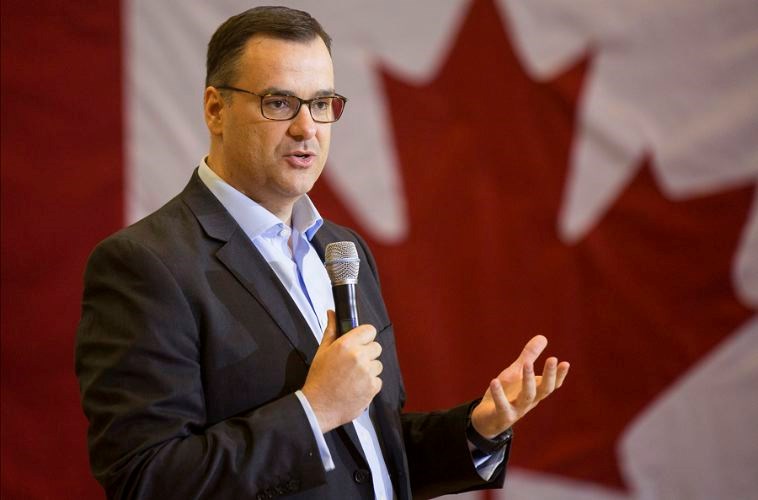James Moore met with a few students Friday for the first time since his November appointment as University of Northern B.C.'s next chancellor.
In the low profile meet-up, the former Conservative cabinet minister and an alumni representative sat with five students, including undergraduate and graduate society presidents. Both societies, after conducting informal polls, have opposed his appointment.
"Students feel that they're not being heard," said Trina Johnson, president of Northern British Columbia Graduate Students' Society.
"From this meeting I see that he is a normal human being that has his own viewpoint, that has a life. I don't want to spread any disrespect," she said for him as a person or his accomplishments, which are many.
But she and other students question whether that resume is the best fit for UNBC. She said she's not sure how she feels about the hour-long meeting, which she learned about just under a week before it was scheduled for Friday morning of UNBC's reading break.
Johnson, stressing she was paraphrasing from memory, said Moore said he was focusing on UNBC's future.
He noted he was not chancellor yet, and so has little official business on the Prince George campus. She got the sense he wanted to address the issue with students, the senate and the board sooner but "he had been refused."
"(Chancellor) is only ceremonial was another of his points," she said.
One of the most consistent refrains among Moore's detractors is that his post as one of former prime minister Stephen Harper's senior ministers implicates him in that government's role in muzzling federal scientists and makes him a poor fit for an academic institution.
"When asked about this, Moore stated that during his time as Minister of Industry he helped create a $1.5 billion research excellence fund to protect the independence of academic research at universities across the country," wrote Grant Bachand in his story for Over The Edge, the campus newspaper.
Bachand also noted Moore felt he and his family had been attacked throughout the backlash.
"According to Moore, he did not look to UNBC to become chancellor, he was asked by the Alumni Association and it was the university who has taken the lead at making this happen, not himself."
Jessy Rajan said she got the same impression.
"He did say that it had been difficult for him and his family and alluded to personal attacks, but still wanted to help UNBC," said Rajan, who is graduate past president and current director of student affairs, and came in for the last half of the meeting.
"He drew attention to the process, which he feels, was followed appropriately. He mentioned that there was a different process for each preceding chancellor. He stated that being 39, a younger generation and an alumni would make him relate more to the university community."
Johnson said she had hoped to have more students involved in the meeting, but Moore was only available for the Friday morning meeting.
"The university didn't want it widespread known. It wasn't a secret meeting, but it wasn't necessarily an open meeting," she added. Northern Undergraduate Student Society president Duncan Malkinson could not be reached by email for comment.
"I did not like that but I understand the university's point of view," Johnson said.
"They are sick and tired of the drama. They want things to settle down. They want everyone to pull together."
But Johnson said that's hard when people feel like they aren't being heard.
"Everybody's got a vision but it seems that we're losing common ground," she said. "I think it's important that somehow that community, that sense of respect for what each of us does has to be restored."
She said she thinks that needs to come from the top down.
"Leaders set the example. If you're not serving in a place of leadership then you're not going to be seen as someone who cares about the masses," Johnson said.
"Humility is important in leaders - the ability to say when you're wrong, the ability to apologize, it's huge."



.png;w=120;h=80;mode=crop)